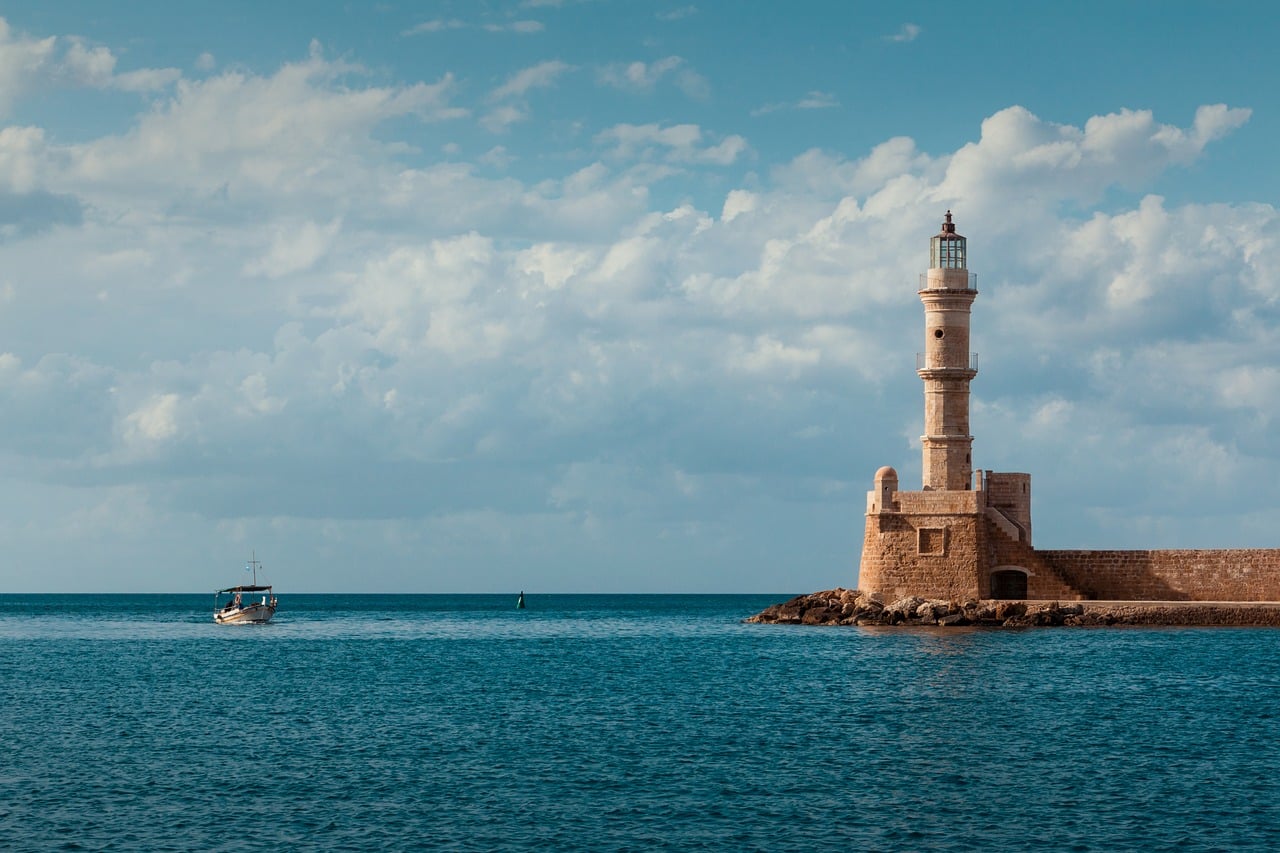Nothing is so contagious as example; and we never do any great good or evil which does not produce its like. — Francois de la Rochefoucauld (1613-1680).
Heroes for liberty are not particular to any region of the world or to a particular time period or to one sex. They hail from all nationalities, races, faiths, and creeds. They inspire others to a noble and universal cause—that all people should be free to live their lives in peace so long as they do no harm to the equal rights of others. They are passionate not solely for their own liberty, but for that of others as well.
In my last book, Real Heroes: Inspiring True Stories of Courage, Character and Conviction, I wrote about 40 individuals whose views, decisions, and actions served this cause in various ways. That book planted the seed for this new weekly series to be published each Thursday at FEE.org. But this time, others from around the world will do the writing, and I’ll be content to do the editing while keeping that to a minimum to preserve the author’s voice. It is my hope that when all is said and done some months from now, the literature of liberty will be greatly complemented by this collection of short biographies. The authors will be writing about heroes for liberty who are (or were) citizens of each author’s own country. Each week’s installment will be added to the collection here.
The subjects of this sixteenth essay in the series are the Zosimades brothers of Greece, major players in both the Greek Enlightenment and the effort to free Greece from Ottoman rule in the 1820s. The author is Michael Iakovidis, co-founder of FEE’s partner organization in Athens, Greek Liberties Monitor. Michael also wrote a few weeks ago about another Greek hero for this series, Archbishop Damaskinos,
--- Lawrence W. Reed, President, Foundation for Economic Education
On one of the first official flags of the Greek War of Independence (1821–1829), the message prominently displayed in bold letters was simple: Liberty or Death. It became the clarion call of the successful revolution against rule by the Ottoman Turks.
It was men of enterprise and business who were using the power of international trade to water the roots of freedom in Greece.
That message is still in use today on Greece’s national flag, in the form of its nine stripes (for the nine syllables of the motto): Five blue stripes represent the syllables of the word “Eleftheria,” meaning “Liberty,” one white stripe stands for the Greek word for “or” and four white stripes refer to “Thanatos,” meaning “Death.”
The roots of liberty, however, predated the revolution. Even more noteworthy is this fact: It was men of enterprise and business who were in the forefront, using the power of international trade to water the roots of freedom in Greece.
The Zosimades Brothers
The Ottoman Empire was known for its huge bureaucracy and onerous taxes. Positioned astride the major Mediterranean trade routes of the time, Greeks who wished to be merchants faced two options. They could either operate within the confines of the Empire, paying the Sultan’s taxes and risking the capricious whims of the regional pashas (Turkish officials), or trust their instincts as merchants and entrepreneurs, and relocate to freer pastures. They chose freedom and flourished.
One of the most renowned examples is that of the Zosimades brothers, all born between 1752 and 1766. They and their family members harnessed the power of enterprise for the good of their country and their fellow citizens. The story starts with the father, Panagiotis.
Reflecting the spirit of enterprise imbued by their father, the six brothers chafed at the limitations imposed by Turkish authorities.
His origins were in the Ioannina region of northwestern Greece. From a family of merchants, Panagiotis was himself a successful businessman. His marriage to Margarita Tsoukalas produced nine children—three daughters and six sons. As was common custom at the time, Panagiotis personally mentored his sons in moral principles in the hope that they would follow in his footsteps in honorable business.
Reflecting the spirit of enterprise imbued by their father, the six brothers—Ioannis, Anastasios, Theodosios, Nicholas, Zois, and Michail—chafed at the limitations imposed by Turkish authorities. So Theodosios, Nicholas, and Michail moved to Livorno, Italy. The other three brothers, Ioannis, Anastasios, and Zois, moved to Nizhny, Russia, which, at the time, was a well-known trade center for European and Asian products.
Two of the brothers died young, Ioannis Zosimas in 1771 at age 19 and Theodosios in 1796 at 33. The other four, who had become hugely successful and wealthy by the late 1790s, became much closer thereafter, partly to fulfill the desire of Theodosios that the family become benefactors to Greece. Anastasios, Nicholas, Zois, and Michail devoted themselves thereafter to “the light and consolation of the homeland.”
Contributing to the Greek Enlightenment
The brothers bestowed much of their fortunes on northwestern Greece for educational purposes, including the construction and maintenance of libraries and schools, the creation of orphanages, and the distribution of books. It is impossible to discuss the “Greek Enlightenment” in the half-century before independence in 1829 without noting the indispensable contributions of the Zosimades brothers.
The brothers’ success in business, the strong familial bond between them, and a commitment to their homeland and its freedom came together for the betterment of their countrymen in many ways. Their example inspired others to enter the world of business and create wealth even in the face of oppression. They gave hugely to charities that eased the pain of the poor, the disadvantaged, and the handicapped. As generous benefactors to the arts and to the appreciation of literature and history, they accelerated the flowering of the Greek Enlightenment.
The brothers invested in precious antiquities with the ultimate purpose of offering them to their homeland when it could be liberated.
While living in Russia, Anastasios and Zois were prominent among the so-called "Brotherhood of the Greeks,” known as the Magistrato. Because the Russians respected the business acumen of the Greeks, they made Nizhny an economic freedom zone, which gave the brothers considerably more freedom to engage in commerce than they would have ever had in occupied Greece. But though this allowed them to become wealthy, they chose to live modestly and, as historian Goudas writes, “to use their wealth to illuminate and set it (Greece) free.”
The brothers (Zois, especially) invested in precious antiquities with the ultimate purpose of offering them to their homeland when it could be liberated. Their massive collection of ancient coins and archaeological treasures—which they ultimately donated to the country—would play a catalytic role in stimulating a sense of Greek identity and the desire for independence from the Ottoman Empire. So did their impressive gifts of rare Greek texts, which helped Greeks rediscover in the 19th Century the rich literary contributions of their ancestors from centuries earlier. They spurred Greek fervor for independence by joining the Philiki Etaireia, a secret society of friends of liberty whose purpose was to overthrow Ottoman rule.
The Power of Wealth Creation
By the time Greek independence was achieved in 1829, all the brothers had died except for Nicholas, who lived until 1842. He carried on the family’s philanthropic tradition until his final days, founding schools, retirement homes, and other important social institutions that educated the young and cared for the poor and sick. Though these acts of philanthropy were significant—some would even say indispensable to getting a newly-free Greece off the ground—one must remember that none of the family’s gifts could ever have been given if the brothers hadn’t mastered the art of wealth creation in the first place.
Enterprise and trade helped give birth to the modern Greek nation.
When Nicholas, the last of the Zosimades brothers, died in 1842, Greece’s King Othon declared three days of national mourning. The King paid tribute to the brothers and their enormous contributions to the economic, social, and political transformation of Greece from an oppressed province of Turkey to a new, free, and hopeful nation that respected private commerce, business success, and charitable giving.
Enterprise and trade helped give birth to the modern Greek nation. The Zosimades brothers personified that historical fact as well as any. Today, however, Greece suffers from many of the same problems that motivated those six brothers to leave, create wealth elsewhere, then use their riches to help liberate the country. We desperately need more men and women just like the Zosimades brothers!

Michael Iakovidis
Michael Iakovidis is co-founder of the Athens-based organization, Greek Liberties Monitor which works to educate the citizens of Greece about ideas of liberty and sound economics. GLM is translating, publishing and distributing FEE courses and articles.
This article was originally published on FEE.org. Read the original article.
![]()






